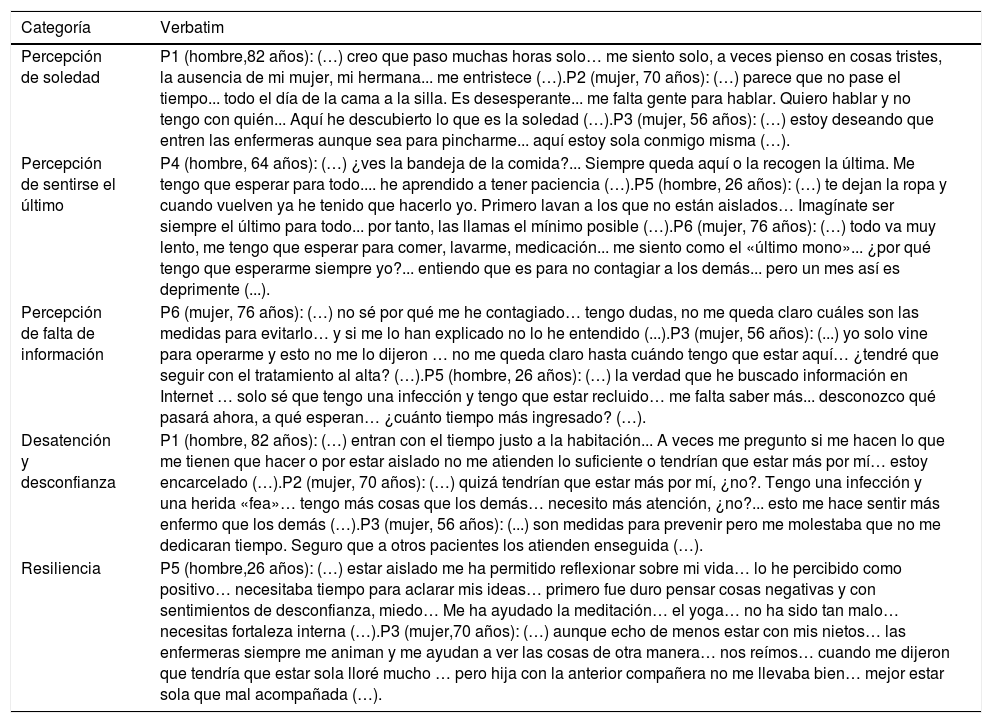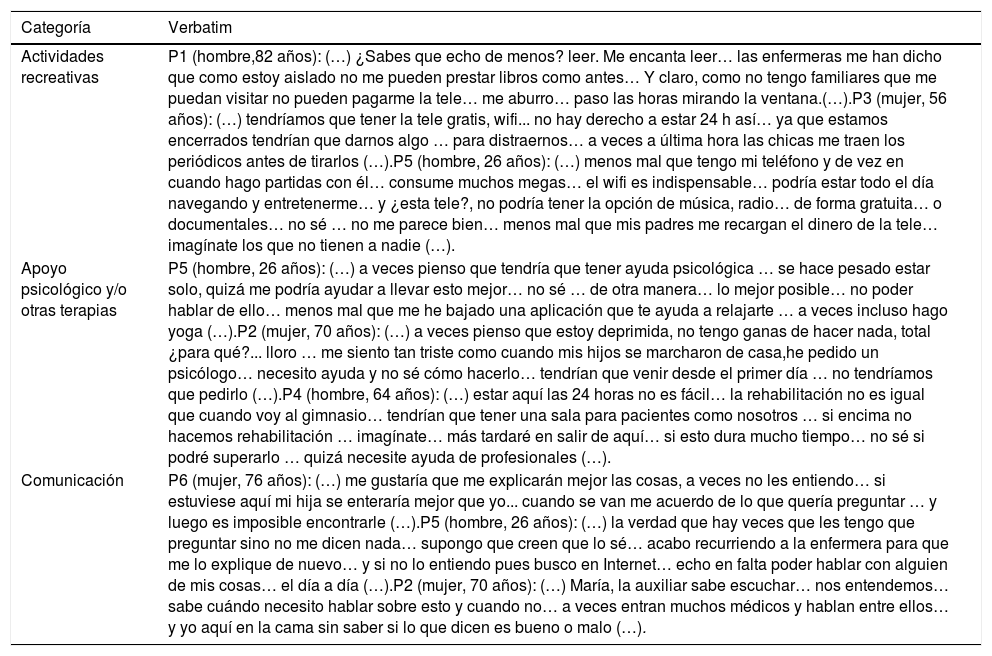Conocer la experiencia vivida de las personas sometidas a un aislamiento hospitalario, así como explorar las necesidades más significativas durante ese proceso.
MétodoEstudio cualitativo con enfoque fenomenológico-hermenéutico. Los participantes fueron pacientes sometidos a aislamiento hospitalario durante su ingreso en el Hospital de Traumatología de la Vall d’Hebron. Se realizaron 6 entrevistas en profundidad grabadas en audio. Los datos fueron analizados a través de un análisis de contenido temático.
ResultadosLas interpretaciones de los participantes de este estudio fueron fundamentales para comprender la experiencia vivida de las personas sometidas a aislamiento hospitalario. Estas percepciones fueron capturadas en formato de 5 categorías para las experiencias: soledad, percepción de «sentirse el último», falta de comunicación, resiliencia y desatención y 3 categorías para las necesidades.
ConclusionesLos hallazgos sugieren que el aislamiento comporta una serie de normas y restricciones en el entorno hospitalario que a pesar de sus propósitos terapéuticos pueden favorecer sentimientos negativos. Debe fomentarse la búsqueda de acciones de mejora dirigidas a minimizar estos sentimientos frente al aislamiento.
To know the experience lived by people subjected to hospital isolation, as well as to recognize the most significant needs expressed during this process.
MethodQualitative study from a phenomenological-hermeneutical approach. The study participants were patients subjected to hospital isolation during their admission to the trauma ward of the Vall d’Hebron University Hospital. Six in-depth interviews were conducted and recorded by audio. The data was analyzed using a thematic content analysis.
ResultsThe feedback from the participants in this study was essential to understand the experience lived by people subjected to hospital isolation. These perceptions were listed in the format of 5 categories related to the following experiences: loneliness, perception of “feeling like the last one”, lack of communication, resilience and lack of attention and 3 categories related to their needs.
ConclusionsThe findings suggest that isolation requires compliance with a series of rules and restrictions in the hospital setting that, despite its therapeutic purposes, can promote negative feelings. Based on the results of our research, we conclude that an effort should be made to improve actions aimed at minimizing these feelings in situations of isolation.









